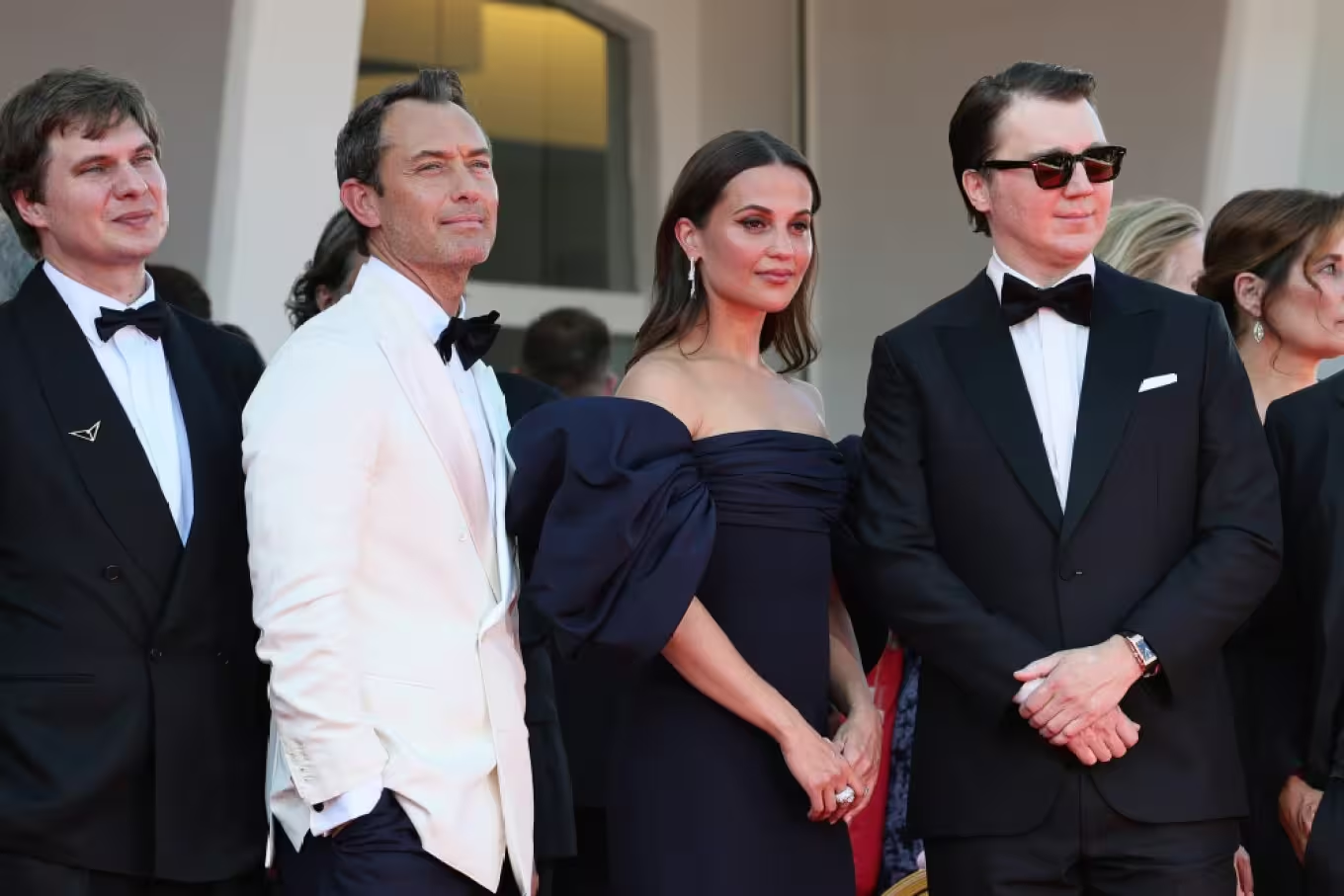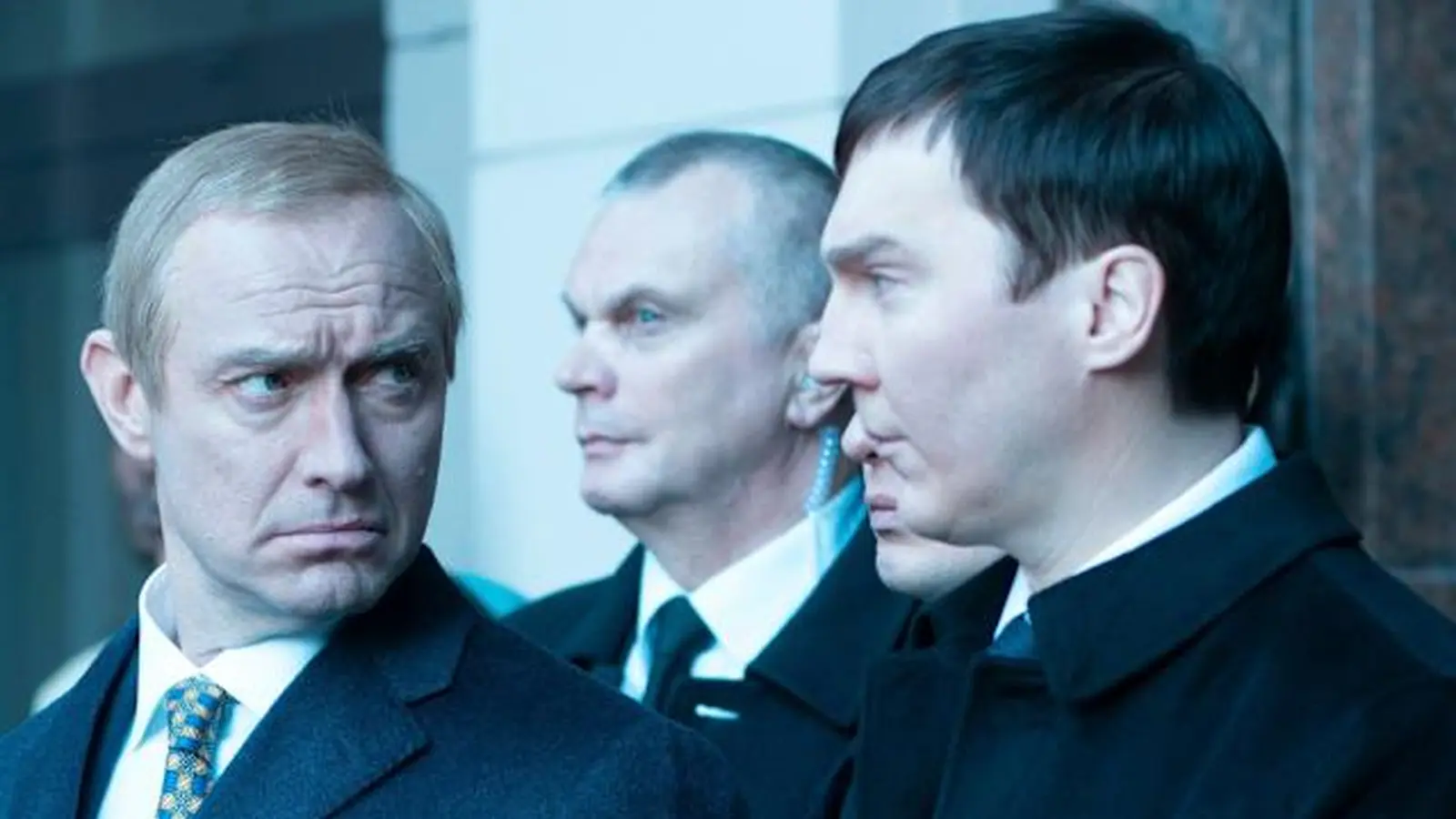5 Minutes
Venice moment: ovation, tears and star power
At this years Venice Film Festival a political film stopped the show. The Wizard of the Kremlin, directed by Olivier Assayas and starring Jude Law as a reimagined Vladimir Putin, earned a sustained 10-minute standing ovation that turned the Lido red carpet into an emotional tableau. Law, in a crisp white tux, stood to accept the applause alongside co-stars Paul Dano and Alicia Vikander. Director Assayas moved through the audience, embracing cast and crew, while Vikander was seen wiping away tears as applause continued.
What the film is and why it matters
Set during the turbulent early 1990s of the Soviet Unions final years, The Wizard of the Kremlin follows fictional reality TV producer Vadim Baranov, played by Paul Dano, who becomes the spin doctor of an ambitious former KGB officer, portrayed by Jude Law. The adaptation of Giuliano da Empolis 2022 novel probes the mechanics of media, image and power as a charismatic but opaque figure rises in a newly fractured Russia. With Tom Sturridge and Jeffrey Wright rounding out the ensemble, the movie blends political thriller beats with intimate character study.
Assayas back in Venice and his cinematic approach
Olivier Assayas, known for Personal Shopper and 2019s Wasp Network, co-wrote the screenplay and brings his signature mix of intellectual inquiry and kinetic direction to this material. The film doesnt aim at documentary fidelity; it uses fiction to interrogate how public narrative and personal ambition collide. That strategy feels especially urgent given ongoing global events and renewed scrutiny of Russias role on the world stage.
Performances and craft
Jude Laws performance drew much of the audience fervor. Rather than rely on caricature, he uses restraint: measured gestures, a practiced public calm and subtle physical tics that suggest rather than mimic a real person. Paul Dano anchors the film emotionally as Baranov, a man both fascinated by and repelled by the machinery he helps build. Alicia Vikander provides a softer counterpoint as Ksenia, Baranovs romantic interest, whose vulnerability grounds the political spectacle.

Comparisons and cinematic lineage
The Wizard of the Kremlin sits alongside modern political dramas like The Death of Stalin in its satirical edge and The Ides of March in its exploration of spin and power. It also continues Assayas exploration of modern anxieties, following Personal Shoppers introspective tone and Wasp Networks geopolitical urgency. For Jude Law, the film complements his recent work in crime drama The Order, showing an actor increasingly drawn to morally ambiguous, politically charged material.
Behind the scenes and audience reaction
Festival anecdotes capture the mood: Assayas climbing seats to embrace collaborators, Law smiling and clapping through the applause, and cast members visibly moved. Insiders noted the careful production design that evokes early 90s Russia without relying on heavy-handed period details, and a score that underscores rather than overwhelms the psychological tension.
Critical perspective and cultural impact
The Wizard of the Kremlin is likely to spark debate. Critics will praise the ensemble performances and Assayas sharp screenplay, while others may question the ethics of fictionalizing recent political figures and events. In the era of streaming platforms and global festivals, films that dramatize contemporary geopolitics tend to travel widely and provoke conversation, making this a major talking point for awards season and international distributors.
Expert view
Cinema historian Marko Jensen offers context: 'Assayas has always been drawn to how private obsessions intersect with public life. Here he uses the political thriller form to map an era of media manipulation and rising authoritarianism, producing a film that is both a character study and a cautionary tale.'
Conclusion: why this film matters to cinephiles
Beyond the spectacle of a headline-making Venice reception, The Wizard of the Kremlin stands out as a film that uses high-caliber performances and smart direction to ask urgent questions about image, power and truth. For fans of political cinema, strong ensemble acting and festival dramas that spark debate, this film will be a must-see — not just for its portrayal of a polarizing figure but for the way it forces viewers to examine how political myths are manufactured and maintained.
Source: variety


Leave a Comment